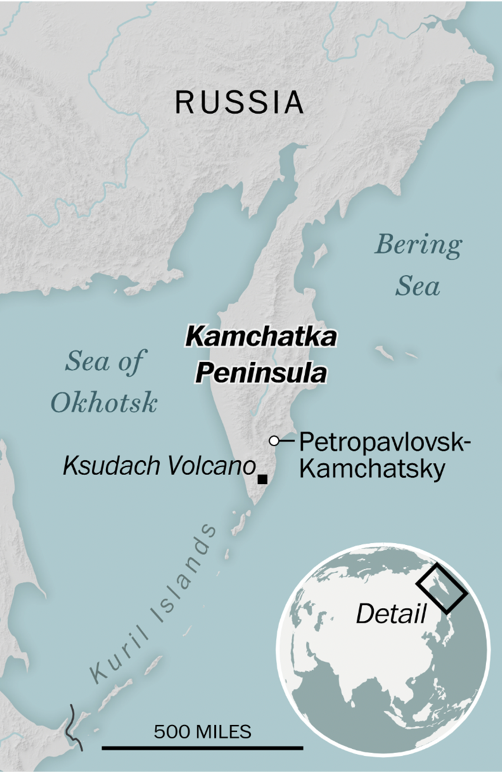Why in the News?
Five strong offshore earthquakes hit Russia’s Kamchatka Peninsula, the strongest measuring 7.4 in magnitude.

About Kamchatka Peninsula:
- Location: Situated in Far Eastern Russia, bordered by the Sea of Okhotsk (west) and the Pacific Ocean and Bering Sea (east).
- Size and Shape: Stretches about 1,200 km north to south and 480 km at its widest point.
- Area: Covers approximately 370,000 square kilometers—comparable in size to New Zealand.
- Ethnic Composition: Majority are ethnic Russians; around 13,000 belong to the indigenous Koryak community.
- Climate: Harsh with long, snowy winters and wet, cool summers.
- Topography: Highest peak is Klyuchevskaya Sopka, an active volcano in the Eastern Mountain Range.
- Global Recognition: Hosts the “Volcanoes of Kamchatka,” a UNESCO World Heritage Site.
Tectonic Significance:
- Geological Setting: Lies on the Pacific Ring of Fire, making it a global hotspot for seismic and volcanic activity.
- Volcanic Density: Contains over 150 volcanoes, 29 of which are currently active.
- Kuril–Kamchatka Trench: Located just offshore, reaches depths of about 10,500 meters and drives regional seismicity.
- Tectonic Cause: Caused by subduction of the Pacific Plate beneath the Eurasian Plate.
| [UPSC 2004] Consider the following geological phenomena:
1. Development of a fault 2. Movement along a fault 3. Impact produced by a volcanic eruption 4. Folding of rocks Which of the above cause earthquakes? Options: (a) 1, 2 and 3 (b) 2 and 4 (c) 1, 3 and 4 (d) 1, 2, 3 and 4* |
Get an IAS/IPS ranker as your 1: 1 personal mentor for UPSC 2024

